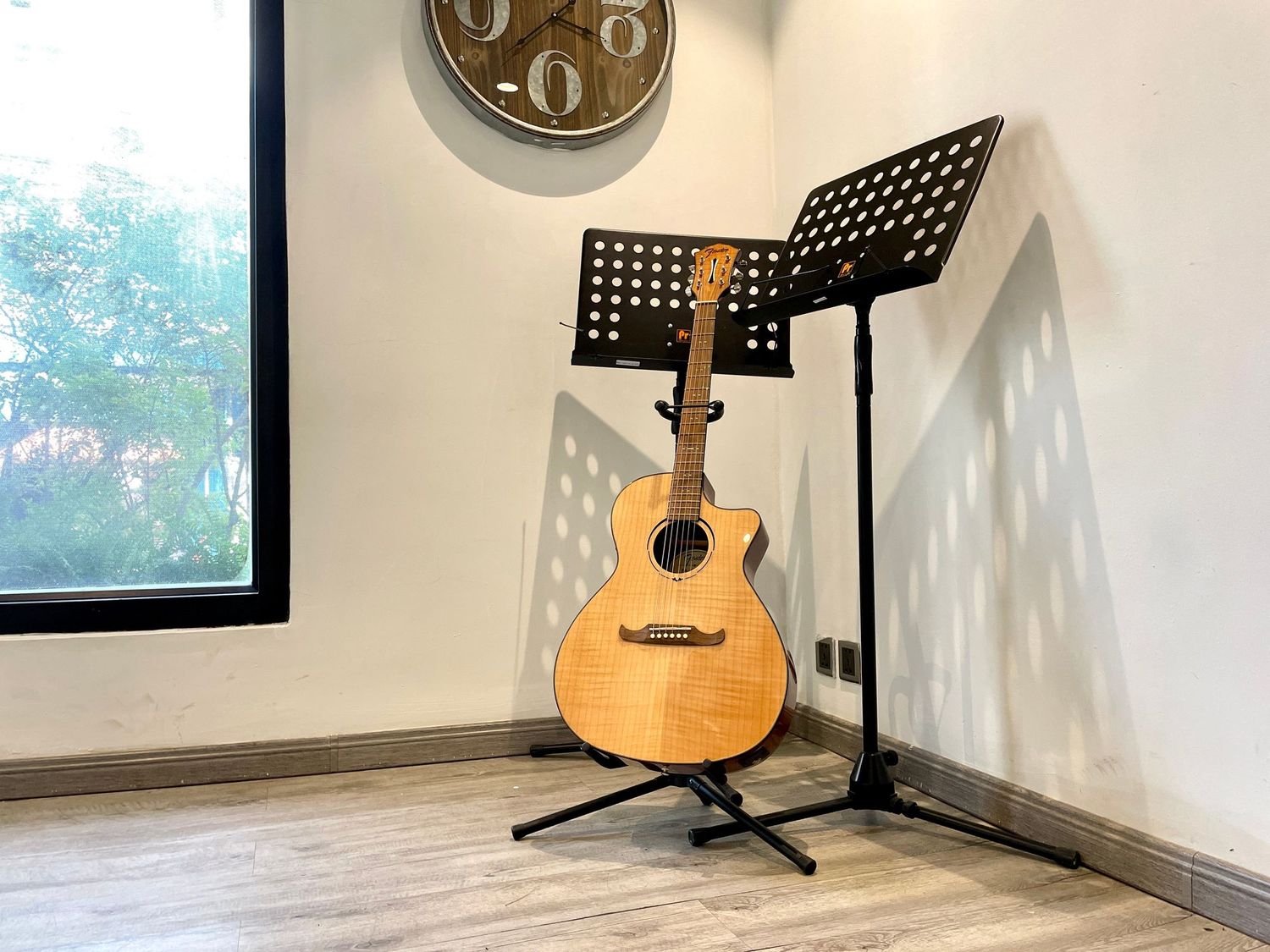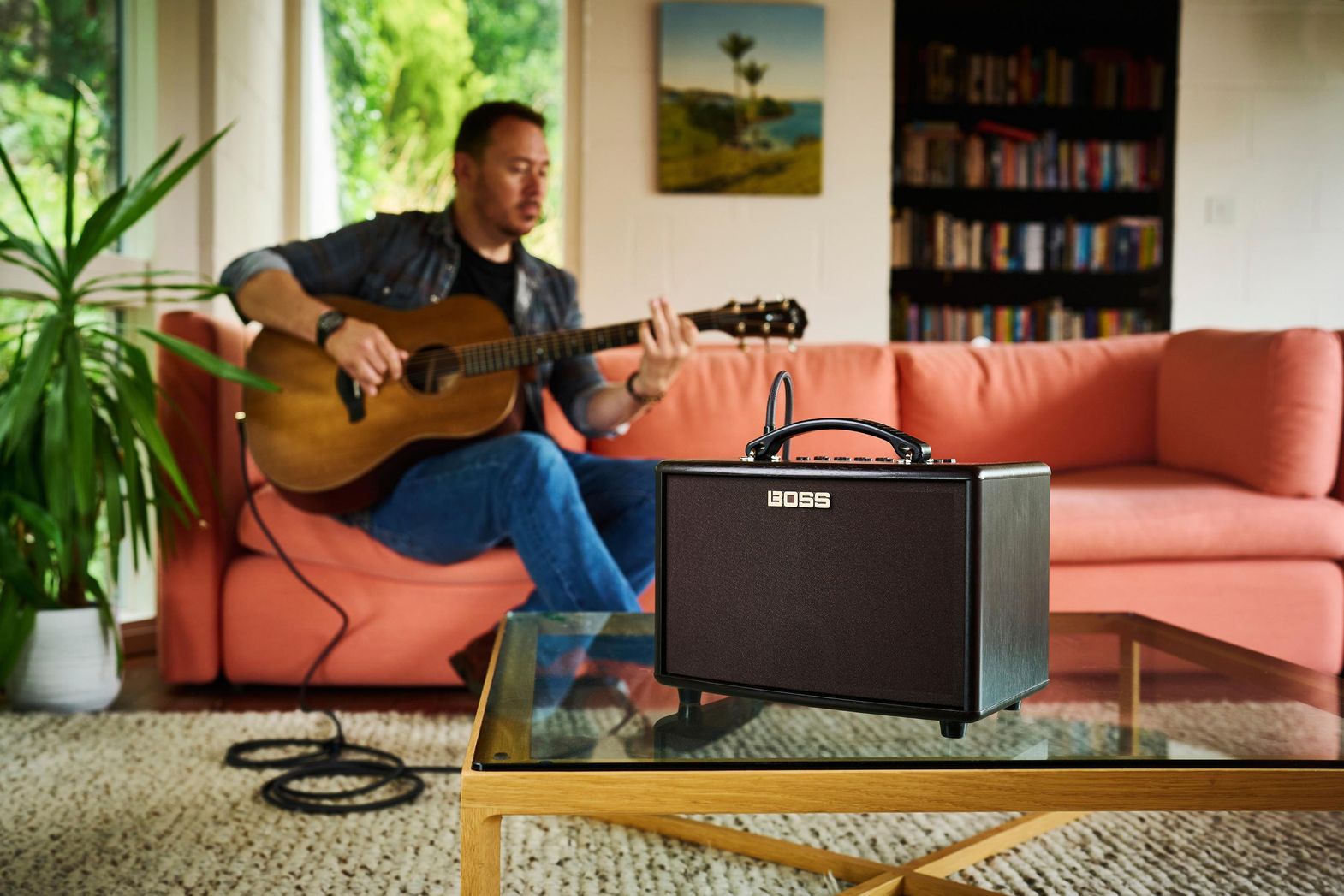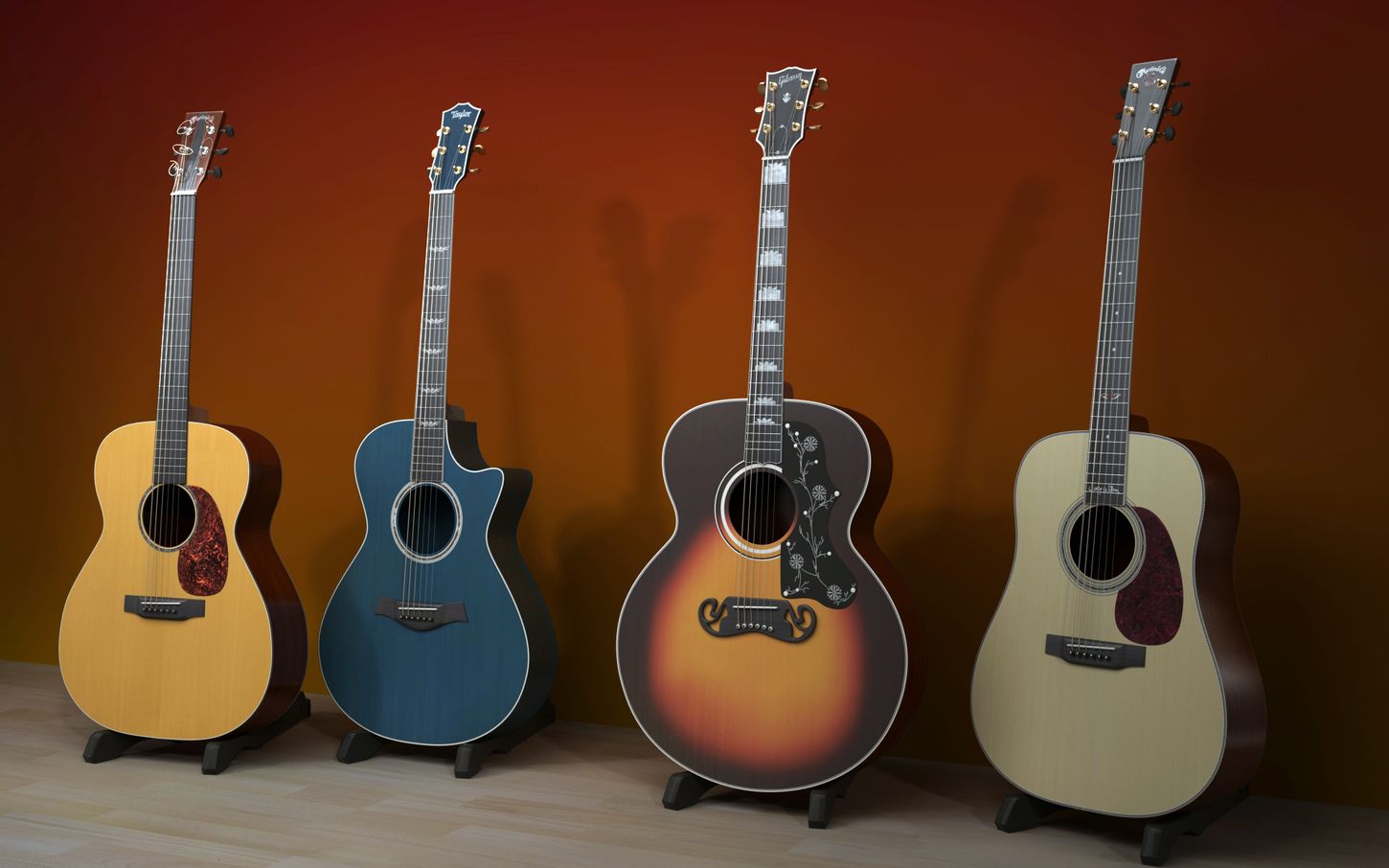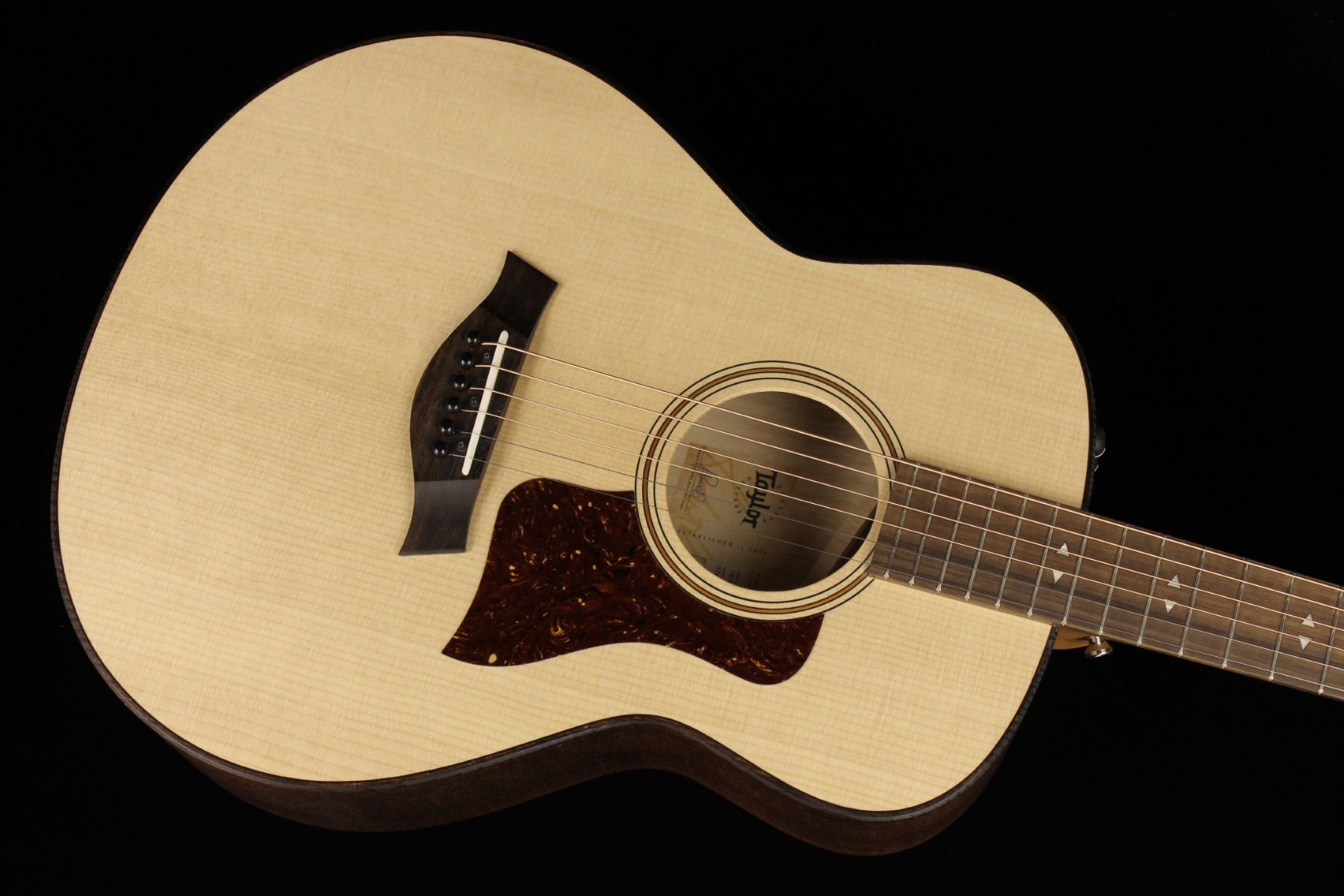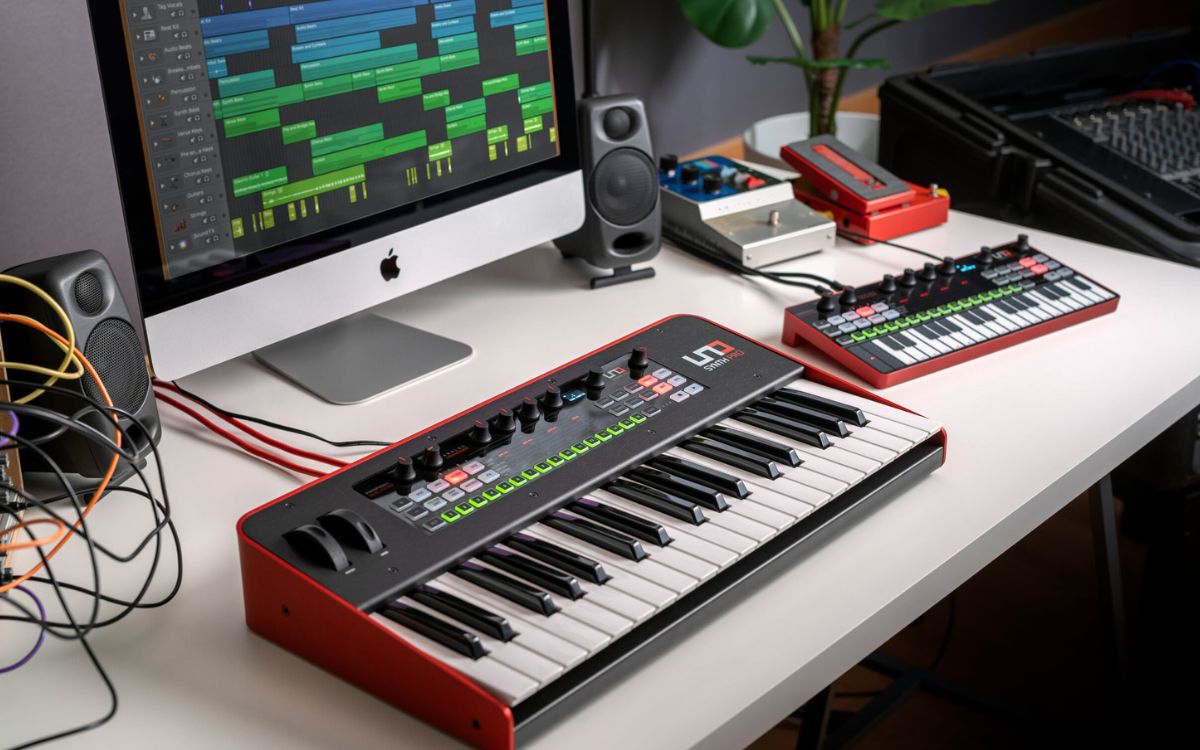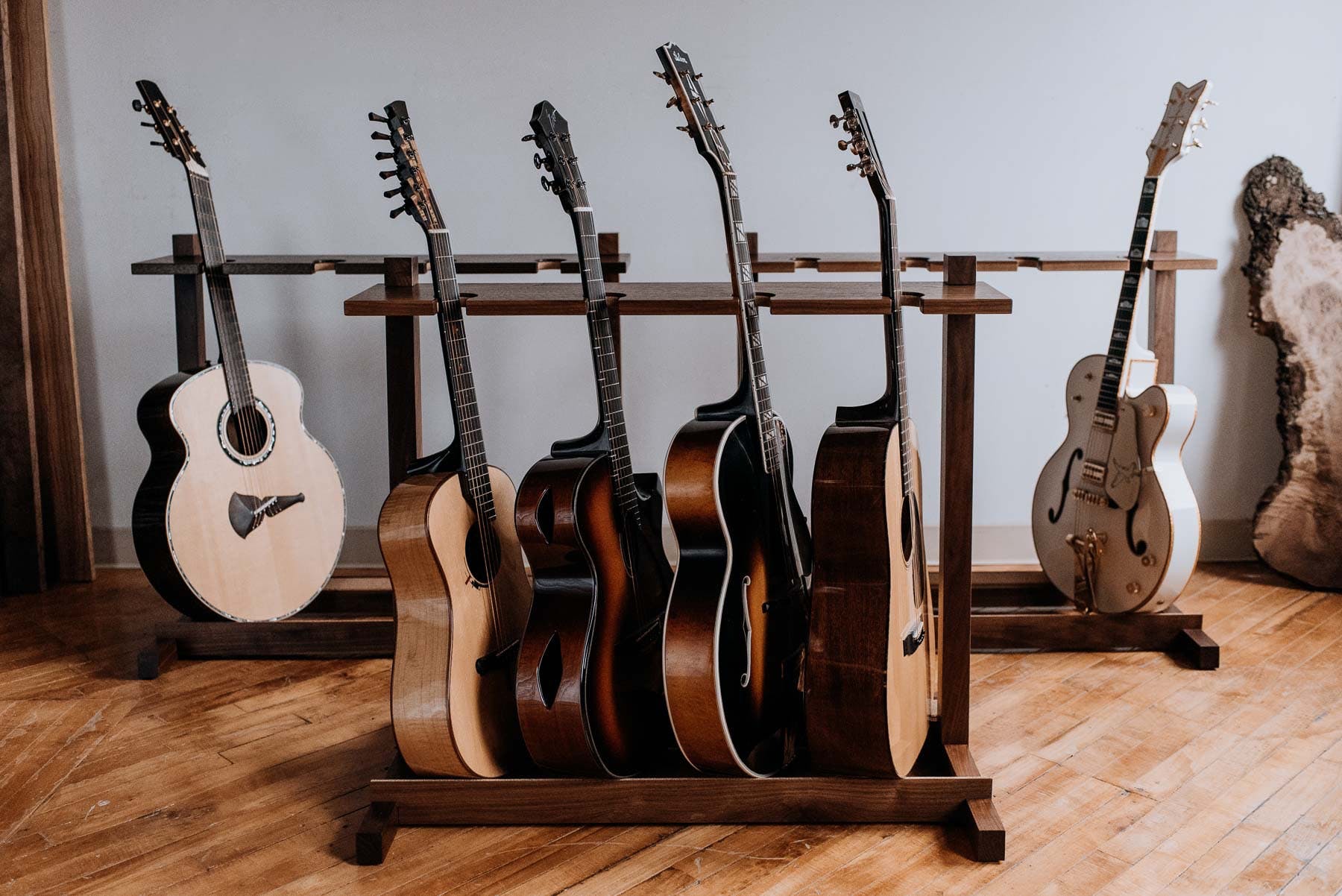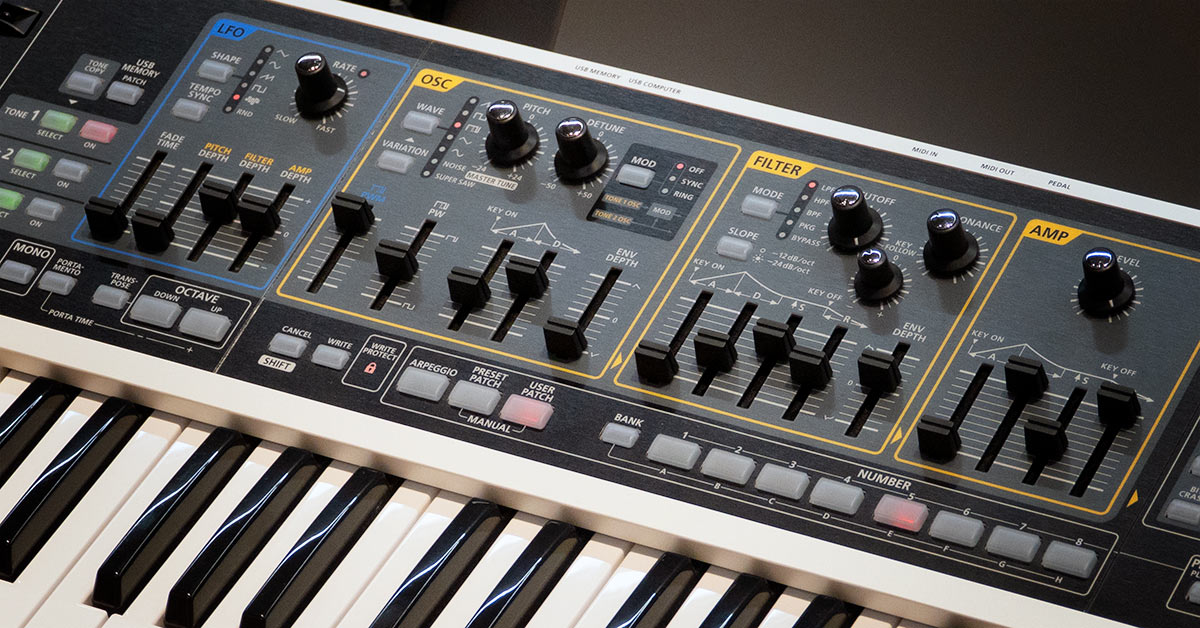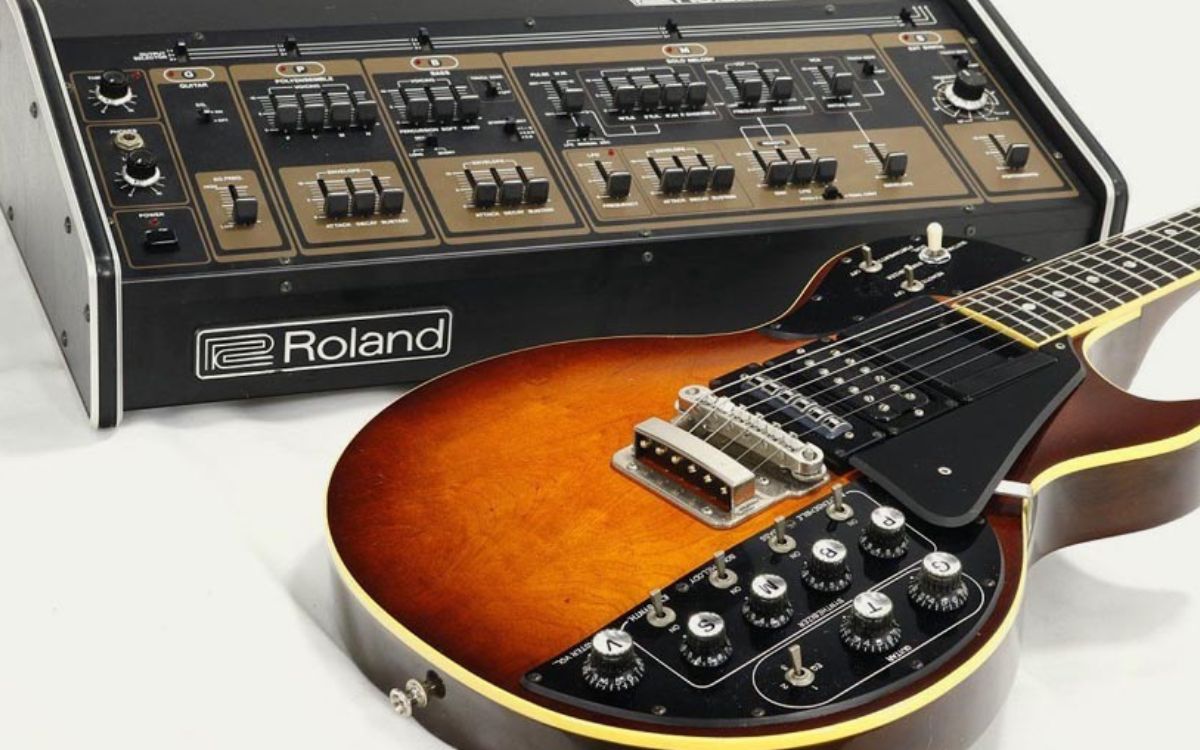Home>Instruments>Synthesizer>What Is The Best Guitar Synthesizer
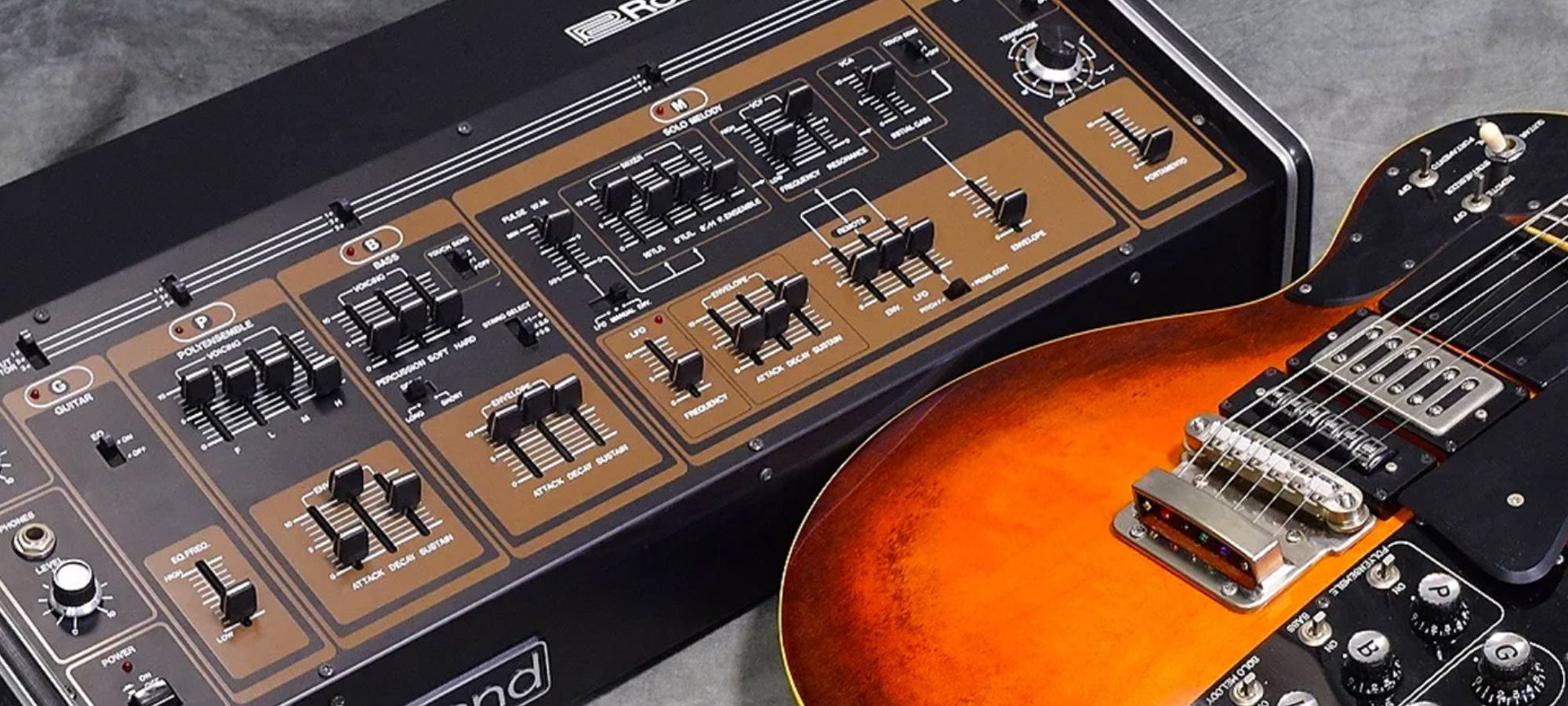

Synthesizer
What Is The Best Guitar Synthesizer
Published: December 11, 2023
Looking for the best guitar synthesizer? Discover the top options for adding unique synthesized sounds to your guitar playing.
(Many of the links in this article redirect to a specific reviewed product. Your purchase of these products through affiliate links helps to generate commission for AudioLover.com, at no extra cost. Learn more)
Table of Contents
- Introduction
- Overview of Guitar Synthesizers
- Factors to Consider When Choosing a Guitar Synthesizer
- Comparison of Top Guitar Synthesizers in the Market
- Understanding Different Synthesis Methods for Guitar Synthesizers
- Tips for Getting the Best Sound with a Guitar Synthesizer
- Pros and Cons of Using a Guitar Synthesizer
- Conclusion
Introduction
Are you a guitarist looking to expand your sonic horizons? If so, then a guitar synthesizer might be just what you need. With the ability to create a wide range of sounds and textures, guitar synthesizers open up a whole new world of possibilities for your playing.
A guitar synthesizer is a device that allows you to convert the sound of your guitar into various synthesized sounds. It takes the natural sound produced by your guitar and modifies it using electronic circuitry, allowing you to create sounds that go beyond what a normal guitar can produce.
The popularity of guitar synthesizers has grown significantly in recent years, as musicians seek to experiment and push the boundaries of traditional guitar playing. Whether you are a professional guitarist looking to add some unique sounds to your arsenal or a hobbyist looking for a new way to express yourself, a guitar synthesizer can be a game-changer.
In this article, we will delve deep into the world of guitar synthesizers. We will explore the different types of guitar synthesizers available, discuss the key factors to consider when choosing one, and provide tips on getting the best sound out of your synthesizer. By the end, you will have a comprehensive understanding of guitar synthesizers and be well-equipped to make an informed decision regarding the best option for your needs.
Overview of Guitar Synthesizers
Guitar synthesizers come in various forms, ranging from standalone units to pedals that can be integrated into your existing guitar rig. They offer a vast array of sounds, ranging from classic synth tones to unique and experimental textures. But how do they work?
At their core, guitar synthesizers utilize a process called signal conversion. They take the input signal from your guitar and transform it into a voltage that can be manipulated to generate different sounds. This conversion is achieved through the use of pickups, MIDI technology, or a combination of both.
Some guitar synthesizers feature built-in pickups designed specifically for synthesizer applications. These pickups capture the vibrations of the strings and convert them into an electrical signal, which is then processed by the synthesizer to produce the desired sounds. Alternatively, MIDI-equipped guitars can transmit the note information directly to the synthesizer, allowing for more precise control over the synthesized sounds.
One of the advantages of guitar synthesizers is their versatility. They can mimic the sounds of other instruments, such as pianos, brass, and strings, allowing guitarists to create realistic and immersive arrangements. Additionally, they can produce unique and atmospheric sounds that are not possible with traditional guitar effects.
Guitar synthesizers often come equipped with a range of controls and parameters that allow you to shape and modify the synthesized sounds. These may include options for adjusting the attack, decay, sustain, and release of the notes, as well as filters, modulation effects, and more. The level of customization available can vary depending on the specific synthesizer you choose.
Ultimately, the goal of a guitar synthesizer is to expand the sonic possibilities of the guitar. They provide a way for guitarists to explore new genres, experiment with different textures and tones, and create unique and expressive sounds that go beyond the limitations of traditional guitar playing.
Factors to Consider When Choosing a Guitar Synthesizer
When it comes to choosing a guitar synthesizer, there are several important factors to consider. These factors will help you find the best synthesizer that suits your needs, playing style, and budget. Here are some key considerations to keep in mind:
- Sound Quality: The sound quality of a guitar synthesizer is paramount. You want a synthesizer that can faithfully reproduce the synthesized sounds you desire with clarity and accuracy. Look for synthesizers that have positive reviews and listen to demos to get a sense of the sound quality.
- Compatibility: Ensure that the guitar synthesizer you choose is compatible with your existing guitar, amp, and other gear. Some synthesizers are designed to work specifically with certain types of guitars or have specific connectivity options, so make sure it will integrate seamlessly with your setup.
- User Interface: The user interface of a guitar synthesizer should be intuitive and user-friendly. It should allow for easy navigation and quick access to essential functions and controls. A clear and informative display is also beneficial for adjusting settings on the fly.
- Playability: Consider how the guitar synthesizer feels to play. Ensure that it tracks your playing accurately and responds smoothly to your technique. Look for features like fast-tracking technology to minimize latency and improve the overall playability of the synthesizer.
- Versatility: Think about the range of sounds and effects that the guitar synthesizer offers. Some synthesizers may specialize in specific types of sounds, while others provide a wider range of sonic possibilities. Consider your musical style and the sounds you want to create, and choose a synthesizer that aligns with your artistic vision.
- Reliability and Durability: It’s essential to invest in a guitar synthesizer that is built to last. Look for models made with high-quality materials and that have a reputation for reliability. This ensures that your investment will stand the test of time, even with regular use and transportation.
By carefully considering these factors, you can ensure that you choose the right guitar synthesizer for your needs. Take the time to research different models, read reviews, and if possible, try them out in person to get a firsthand experience of how they perform and feel. Remember, finding the perfect guitar synthesizer can greatly enhance your musical journey and inspire new creative possibilities.
Comparison of Top Guitar Synthesizers in the Market
With a plethora of guitar synthesizers available on the market, it can be overwhelming to choose the right one for your needs. To help streamline your decision-making process, let’s take a closer look at some of the top guitar synthesizers currently available:
- BOSS SY-300: The SY-300 from BOSS is a highly versatile guitar synthesizer that offers an extensive range of sounds and effects. It features polyphonic synthesizer technology, allowing you to play multiple notes simultaneously. With its intuitive interface and robust build quality, the SY-300 is a popular choice among guitarists seeking limitless creative possibilities.
- Roland GR-55: The GR-55 from Roland is another highly regarded guitar synthesizer that offers an impressive array of sounds. It combines advanced guitar synthesis technology with powerful DSP processing to deliver realistic and expressive tones. The GR-55 is also equipped with an onboard USB audio/MIDI interface, making it a versatile option for both stage and studio use.
- Moog Guitar Synthesizer: Moog synthesizers are hailed as some of the best in the industry, and their guitar synthesizer is no exception. With its unique and expressive design, the Moog guitar synthesizer offers a wide range of analog synth sounds. Its innovative control layout allows for seamless integration with your existing guitar playing technique, making it a favorite among players looking for a more organic and tactile experience.
- Eventide H9: Although not specifically marketed as a guitar synthesizer, the Eventide H9 is a powerful and versatile effects processor that can be used to create synth-like tones. With its vast selection of high-quality algorithms and customizable parameters, the H9 can transform your guitar sound into a synth-like paradise. It also offers integration with expression pedals and MIDI control for added flexibility.
- Yamaha G10: The Yamaha G10 wireless guitar system offers an innovative approach to guitar synthesis. It utilizes wireless technology to transmit your guitar signal to a separate synthesizer unit, allowing for freedom of movement on stage. With its responsive tracking and extensive sound library, the Yamaha G10 provides a seamless and immersive guitar synthesis experience.
These are just a few examples of the top guitar synthesizers on the market, each offering its unique set of features and capabilities. The right choice for you ultimately depends on your specific needs, preferences, and playing style. Take the time to research and try out different options to find the guitar synthesizer that resonates with you and helps elevate your musical expression to new heights.
Understanding Different Synthesis Methods for Guitar Synthesizers
Guitar synthesizers employ various synthesis methods to generate different sounds and textures. Understanding these synthesis methods can help you make an informed decision when choosing a guitar synthesizer and enable you to achieve the desired sonic results. Let’s explore some of the common synthesis methods utilized in guitar synthesizers:
- Subtractive Synthesis: Subtractive synthesis is one of the most common methods used in guitar synthesizers. It involves starting with a complex waveform and then filtering out certain frequencies to create a desired sound. This method allows for creating rich and evolving tones, and it’s often used for emulating classic analog synth sounds.
- Frequency Modulation (FM) Synthesis: FM synthesis is a technique that involves modulating the frequency of one waveform with another. It produces complex and harmonically rich sounds that can range from metallic tones to percussive and bell-like sounds. FM synthesis can be used to create both realistic and abstract guitar synth sounds.
- Granular Synthesis: Granular synthesis breaks down sounds into tiny fragments called grains and then manipulates them to create new textures and rhythms. This method excels at creating atmospheric and evolving sounds that can add depth and complexity to your guitar playing.
- Sample-based Synthesis: Sample-based synthesis uses pre-recorded audio samples as the basis for creating sounds. It allows guitar synthesizers to reproduce realistic instrument sounds or incorporate non-guitar sounds into your playing. Sample-based synthesis is often used in guitar synthesizers to emulate pianos, strings, and other instruments.
- Physical Modeling Synthesis: Physical modeling synthesis aims to simulate the sound-producing mechanisms of real-world instruments. It uses mathematical models to replicate the behavior of vibrating strings, resonating bodies, and other physical elements. This method can generate highly realistic and expressive sounds, making it popular for emulating acoustic instruments.
These are just a few of the many synthesis methods used in guitar synthesizers. It’s important to note that some guitar synthesizers may utilize a combination of these methods or even offer additional proprietary synthesis techniques. Familiarizing yourself with these different methods can help you choose a guitar synthesizer that aligns with your sonic preferences and enables you to explore a wide range of sounds and textures.
Tips for Getting the Best Sound with a Guitar Synthesizer
Getting the best sound out of your guitar synthesizer requires some know-how and experimentation. Here are a few tips to help you maximize the potential of your guitar synthesizer:
- Experiment with Different Synthesis Settings: Don’t be afraid to explore the various synthesis settings and parameters available on your guitar synthesizer. Experiment with different waveforms, filters, modulation effects, and envelopes to discover unique and interesting sounds.
- Take Advantage of Polyphonic Capabilities: If your guitar synthesizer offers polyphonic capabilities, make sure to take advantage of it. Polyphonic synthesis allows you to play multiple notes simultaneously, enabling you to create rich, layered sounds and emulate chord progressions.
- Avoid Excessive Distortion: While distortion can add grit and aggression to your guitar sound, it can sometimes negatively impact the quality of your synthesized tones. Use distortion sparingly and experiment with different levels to find the right balance between the natural guitar tone and the synthesized sound.
- Pay Attention to Tracking: Tracking refers to how accurately the guitar synthesizer responds to your playing. Ensure that your synthesizer has good tracking capabilities, meaning it accurately detects the notes you play. This will help you achieve cleaner and more articulate synthesized sounds.
- Use Blending and Layering Techniques: Consider blending your guitar sound with the synthesized tones to create unique textures. Experiment with layering different sounds to add depth and richness to your playing. This can be achieved by using multiple outputs or by blending the outputs from your guitar and synthesizer through a mixer.
- Experiment with Effects: Don’t limit yourself to the built-in effects of your guitar synthesizer. Explore external effects pedals and processors to further enhance and shape your synthesized sounds. This can include modulation effects, delays, reverbs, and other creative tools.
- Practice Expressive Playing Techniques: One of the advantages of guitar synthesizers is the ability to add expressiveness and dynamics to your playing. Experiment with techniques like vibrato, bends, slides, and volume swells to add nuance and character to your synthesized tones.
- Take Advantage of MIDI Control: If your guitar synthesizer features MIDI capabilities, explore the possibilities of using external MIDI controllers to manipulate parameters in real-time. This can allow for greater control and expression while performing with your synthesizer.
Remember, getting the best sound out of your guitar synthesizer is a personal journey. Take the time to experiment, explore, and develop your own unique sound. With practice and exploration, you will unlock new musical possibilities and discover the full potential of your guitar synthesizer.
Pros and Cons of Using a Guitar Synthesizer
Using a guitar synthesizer opens up a world of creative possibilities, but it’s important to consider both the pros and cons before incorporating one into your musical setup. Here are some advantages and disadvantages of using a guitar synthesizer:
Pros:
- Expanded Sonic Palette: A guitar synthesizer allows you to explore a wide range of sounds beyond the traditional capabilities of a guitar. You can create realistic emulations of other instruments, experiment with unique textures, and create sounds that push the boundaries of traditional guitar playing.
- Versatility and Flexibility: With a guitar synthesizer, you can switch between different sounds and tones instantaneously, without needing to change guitars or gear. This versatility allows you to adapt to various musical genres and styles, making it a valuable tool for session musicians and performers.
- Creative Expression: Guitar synthesizers offer a platform for personal expression and creativity. They allow you to develop a unique sonic identity and push the boundaries of your musicality. The ability to create and manipulate sounds in real-time opens up new avenues for self-expression and musical exploration.
- Emulation of Other Instruments: Guitar synthesizers provide the opportunity to emulate the sounds of other instruments, such as pianos, strings, and horns. This can be particularly advantageous for solo performers or musicians who want to add depth and variety to their compositions.
- Live Performance Capabilities: Guitar synthesizers excel in live performance situations. They enable you to create dynamic soundscapes, layer sounds, and incorporate real-time effects. This can add depth and excitement to your live performances and captivate your audience.
Cons:
- Learning Curve: Mastering a guitar synthesizer can be challenging, especially if you’re new to synthesis concepts and techniques. It requires a learning curve to understand its functionality, programming, and how to integrate it into your playing effectively.
- Tracking Limitations: While modern guitar synthesizers have significantly improved tracking capabilities, there can still be occasional tracking limitations. This means that the synthesizer may not accurately reproduce certain fast or intricate guitar playing, resulting in glitches or inaccuracies in the synthesized sound.
- Additional Gear and Setup: Using a guitar synthesizer often requires additional gear, such as MIDI cables, power supplies, and dedicated pickups. This can add complexity to your setup and may involve extra expenses to ensure full compatibility and functionality.
- Dependency on Technology: Guitar synthesizers rely on technology, which means they are susceptible to malfunctions, software updates, and compatibility issues. It’s important to stay up to date with firmware and software updates to ensure optimal performance and compatibility with your other gear.
- Integration Challenges: Integrating a guitar synthesizer into your existing setup can pose challenges. It may require rewiring your pedalboard, dedicating additional space on your pedalboard or rack, and potentially changing your playing technique to accommodate the added functionality of the synthesizer.
When deciding whether to use a guitar synthesizer, carefully weigh these pros and cons against your musical goals and preferences. Consider the level of commitment and dedication required to integrate a guitar synthesizer into your playing style, and determine if the advantages outweigh the challenges. With the right approach and mindset, a guitar synthesizer can be a powerful tool to expand your musical horizons and unleash your creative potential.
Conclusion
Guitar synthesizers have revolutionized the way guitarists approach music-making and sound creation. These devices offer a vast range of sounds and textures, allowing guitarists to explore new genres, express their creativity, and push the boundaries of traditional guitar playing.
In this article, we have explored the world of guitar synthesizers, discussing their components, functionality, and the factors to consider when choosing one. We have highlighted the importance of sound quality, compatibility, user interface, playability, versatility, and reliability in the decision-making process.
We have also discussed the various synthesis methods utilized in guitar synthesizers, including subtractive synthesis, frequency modulation synthesis, granular synthesis, sample-based synthesis, and physical modeling synthesis. Understanding these methods can provide insight into the sonic possibilities that guitar synthesizers offer.
Additionally, we have provided tips on how to get the best sound out of a guitar synthesizer, focusing on experimenting with synthesis settings, taking advantage of polyphonic capabilities, paying attention to tracking, using blending and layering techniques, and exploring expressive playing techniques.
It’s important to note that using a guitar synthesizer has both pros and cons. While they expand your sonic palette, offer versatility and flexibility, and enhance your creative expression, they also come with a learning curve, tracking limitations, and additional setup requirements.
In conclusion, incorporating a guitar synthesizer into your musical arsenal can open up a world of possibilities. Whether you’re a professional guitarist seeking new sounds, textures, and creative avenues, or a hobbyist looking to experiment and expand your musical horizons, a guitar synthesizer can be a valuable tool. By understanding the various options available, considering your needs and preferences, and dedicating time to practice and exploration, you can unleash your full creative potential and take your guitar playing to new heights with a guitar synthesizer.

